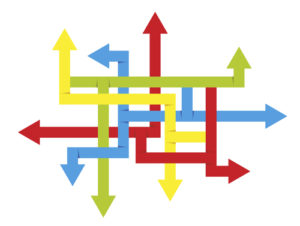Let’s talk some more about mediation research.
To recap, in his February 2019 post to this Blog, Michael Leathes argued for the need for more field-based research into mediation. He asked, “What if a vast range of mediation skills and techniques could be radically improved by new data derived from large-scale national and international field research?” He also posed a number of other equally tantalizing “what if” questions. He concluded, “If more targeted field research really would generate great new value for parties and mediators, and therefore absolutely needs to be done, why not just get on and do it?”
Mr. Leathes argument was challenged in a comment by Australian mediator Greg Rooney who argued that the call for more field-based research represented a very “Newtonian form of thinking”. Mr. Rooney’s point was, “that in the complexity of human relationships, within which mediators operate, data is never repeatable.” and he directed readers to his article, Mediation, Mediator, Mediation.
In my own responding Blog post I stated my predisposition to Mr. Rooney’s approach and noted, “While more research on all aspects of mediation is always needed, my concern is that the over-resourcing of field-based research seeking evidence of effective mediation techniques will inevitably result in under-resourcing more import areas of mediation research – areas that would likely lead to increasing the utilization of the mediation process. I concluded with, “I think there’s little reason to believe that more field-based mediation research focusing on mediation techniques will tell us anything we don’t already know.”
Ironically, (to me, at least) my two subsequent Blog posts, The Surprising Effectiveness of Hostile Mediators and Commercial Mediation and Good Decisions have focused on, you guessed it, RESEARCH.
While I endorse Mr. Rooney’s perspective, I am also endlessly curious about the mediation process and, as throughout my 30 years as a commercial mediator, committed to the continuous improvement of my own process knowledge and skills.
All of this brings me to a panel discussion scheduled for the upcoming Pepperdine Past-and-Future Conference (June 18-19, 2019). The panel consisting of John Lande, Doug Frenkel, Michaela Keet, and Donna Stienstra (of the Federal Judicial Centre) is entitled, “Research and Scholarship with a Real-World Focus Studying What Practitioners Actually Do.”
The panel will focus on a series of questions that seeks guidance for further research into dispute resolution (including mediation). The questions are thought-provoking and I set them out here for readers of this Blog:
-
-
- What should be the most important and realistic goals of future empirical research on dispute resolution? For example, should it seek to:
- develop clearer concepts and language
- identify key contextual factors affecting processes
- develop new theories and insights
- develop valid generalizations
- help establish consensus on best / worst practices
- help design conflict management systems
- How should we deal with the fact that DR processes are so complicated and affected by many contextual factors that it is hard to generalize?
- The world is changing rapidly and DR practice is changing as part of that. What questions would be important for our field to study empirically? What are new forms of DR we should study? What are challenges or barriers for improving DR processes and systems?
- What factors do you hypothesize to affect DR processes and outcomes – and thus would be important to study?
- What are good methodological approaches for designing empirical research to get realistic understandings of what happens in the real world?
- How can researchers and stakeholders practically collaborate to design research? How can law school DR faculty collaborate with other (law school) faculty to design and conduct research?
- What should be the most important and realistic goals of future empirical research on dispute resolution? For example, should it seek to:
-
I know that thousands of readers visit this Blog every month. Many, I suspect, are practicing mediators from all over the world. This question of the future direction of mediation research is of vital importance to this community and I invite readers to weigh in with their thoughts. Do you share Mr. Leathe’s optimism for the utility of field-based research? Do you subscribe to Mr. Rooney’s “complexity theory” of what makes a mediator? What are your thoughts on the questions to be discussed at the upcoming conference?
Some, including me, have expressed concerns about an ossification of the commercial mediation process in jurisdictions, like here in Ontario Canada, where the process has remained largely unchanged for the past 30 years. With that in mind, let me add another question. What can be done to reenergize, revitalize the mediation process in the public interest?
________________________
To make sure you do not miss out on regular updates from the Kluwer Mediation Blog, please subscribe here.






Dear Rick the issue of mediation research is important and it is good that you and Michael Leathes have raised it. Mediators engage with the human condition. Nothing is repeatable when humans interact. Every situation is novel. There is no end point or finish. There is only perpetual novelty.
All research must start at this point. That is the great challenge.
To quote the American physicist Murray Gell-Mann the only human system is the system itself. You need to study the whole system however crudely it has to be done. Human relations are so complex that all aspects affect all others to an extraordinary degree. You can’t glue together partial studies to gain a good idea of the behaviour of the whole